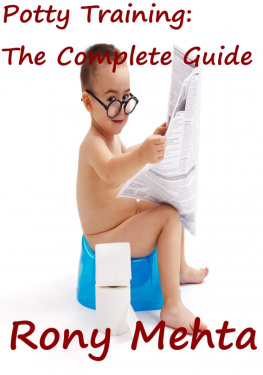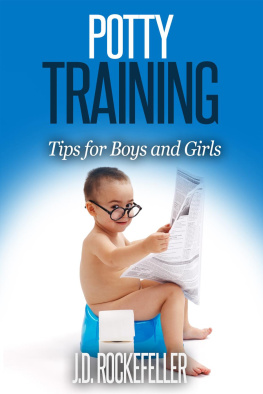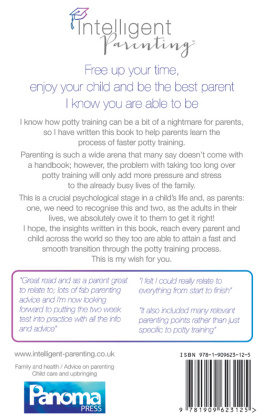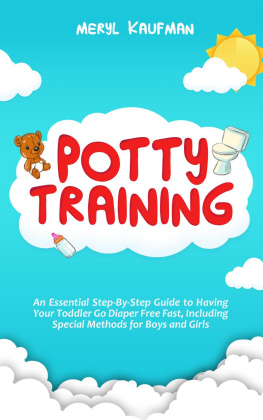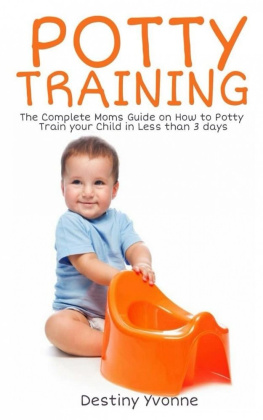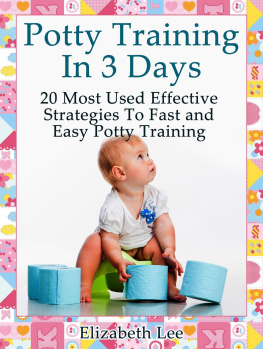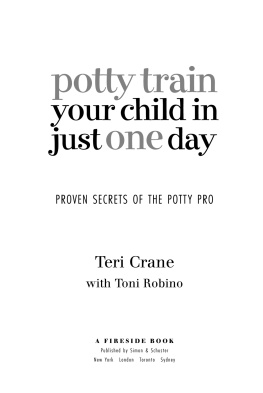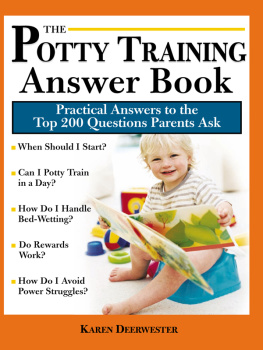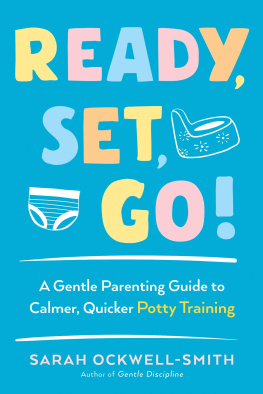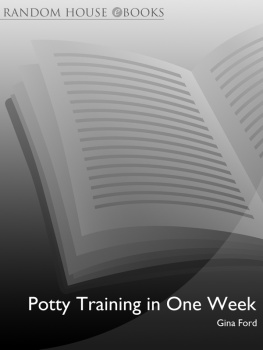Simone Cave was the health editor at the Daily Mirrorfor eight years and is now a freelance journalist coveringhealth and medical issues for national newspapers andmagazines. She lives with her husband and three childrenin South London. Simone can be contacted via:www.yourbabyandchild.com
Dr Caroline Fertleman is Consultant Paediatrician at theWhittington Hospital, London, and is Honorary SeniorLecturer at the Royal Free Hospital and UniversityCollege London Medical School. She is also HonoraryConsultant Paediatrician at the world-renowned GreatOrmond Street Hospital for Children. She lives inLondon with her husband and three children.
This eBook is copyright material and must not be copied, reproduced, transferred, distributed, leased, licensed or publicly performed or used in any way except as specifically permitted in writing by the publishers, as allowed under the terms and conditions under which it was purchased or as strictly permitted by applicable copyright law. Any unauthorised distribution or use of this text may be a direct infringement of the author's and publisher's rights and those responsible may be liable in law accordingly.
ISBN 9781407028996
Version 1.0
www.randomhouse.co.uk
1 3 5 7 9 10 8 6 4 2
Published in 2009 by Vermilion, an imprint of Ebury Publishing
Ebury Publishing is a Random House Group company
Copyright Simone Cave and Dr Caroline Fertleman 2009
Simone Cave and Dr Caroline Fertleman have asserted their right to beidentified as the authors of this Work in accordance with the Copyright,Designs and Patents Act 1988.
This electronic book is sold subject to the condition that it shall not by way of trade or otherwise, be lent, resold, hired out, or otherwise circulated without the publisher's prior consent in any form other than that in which it is published and without a similar condition including this condition being imposed on the subsequent purchaser
The Random House Group Limited Reg. No. 954009
Addresses for companies within the Random House Group can be found atwww.rbooks.co.uk
A CIP catalogue record for this book is available from the British Library
ISBN: 9781407028996
Version 1.0
Copies are available at special rates for bulk orders. Contact the salesdevelopment team on 020 7840 8487 for more information.
To buy books by your favourite authors and register for offers, visit
www.rbooks.co.uk
The information in this book has been compiled by way of general guidance in relationto the specific subjects addressed, but is not a substitute and not to be relied on formedical, healthcare, pharmaceutical or other professional advice on specific circumstances and in specific locations. Please consult your GP before changing, stopping orstarting any medical treatment. So far as the authors are aware the information givenis correct and up to date as at May 2009. Practice, laws and regulations all change, andthe reader should obtain up-to-date professional advice on any such issues. The authorsand publishers disclaim, as far as the law allows, any liability arising directly orindirectly from the use, or misuse, of the information contained in this book.
We dedicate this book to our daughters
Natalie and Betsy.
ACKNOWLEDGEMENTS
With thanks to:
Paul Johnson, Judy Cave and Barbara Levy.
Introduction
Little girls are known to be sensible, mature andgenerally more advanced than little boys the sameage. This is because their brains actually developearlier than boys'. Boys tend to use just the left-handside of their brain, which thinks analytically. Girls useboth the left-hand side and also the creative right-handside at the same time because the neural pathwaybetween the left and right side is more efficient. This iswhy girls generally develop language skills earlier, andthis difference continues until the age of five when boyscatch up. If this sounds like your daughter, it certainlybodes well for potty training. With a bit of encouragementfrom you she should leave her nappies behind witha minimum of fuss and puddles.
Unfortunately, things don't always go by the book.Life can get in the way of the most carefully laid plans.It's well known, for instance, that stressful events suchas a new sibling or moving house can have a big impacton potty training. Also, although you hear fewerproblems about girls learning to use the potty, allchildren are different; just because your child is femaleit doesn't guarantee she will be mature and sensible.Plenty of little girls are boisterous, slower to mature andstruggle to concentrate.
We've taken all this into account and have writtenthis book to guide you gently through the process ofpotty training, whatever your situation. Our flexibleapproach makes the transition from nappies to the toiletsmooth, stress-free and fun for all little girls. If you hita stumbling block, we'll show you step by step how todeal with the problem. By following our potty-trainingprogramme your daughter will learn to use the potty injust a couple of weeks or, if you're particularly lucky,even sooner.
It tends to be Mum who potty trains her daughter,but anyone caring for your little girl can use this book.We've included a special section for dads it's notalways easy for fathers to take their young daughters tothe toilet so we've given lots of tips.
WHAT AGE SHOULD SHE BEGIN?
This is the million-dollar question. In the UK, theaverage age for little girls is around two and aquarter (two and a half for boys). As all children aredifferent your daughter may not be ready to potty trainuntil she is older sometimes nearer her third birthdaythan her second. She may, however, be ready from asyoung as 18 months. There's nothing you can do tochange the age at which she develops and becomesready this is down to nature. What you can do isobserve her carefully and spot the signs that she's readyto begin (see Chapter 1).
Getting the timing right is key to successful pottytraining. If you push your daughter too early she'llprobably take longer to learn, and may even have to goback into nappies for a few weeks. A US study publishedin the journal Pediatrics found that training before theage of 27 months nearly always takes longer thantraining a child after this age.
Don't be in too much of a rush it's not acompetition. Your daughter won't turn around in 20years and thank you for the fact that she was out ofnappies three months earlier than her best friend. Onthe other hand, she may well have something to sayabout the fact that you pushed her into using the pottytoo soon and she ended up getting stressed andfrustrated, still wetting herself at the age of five.
Be patient, wait until your daughter is ready, and theprocess will be swift with no tears.
OUR METHOD
Our method consists of having potty-training'sessions', beginning with just an hour a daywithout a nappy and gradually building up until yourdaughter never wears a nappy at home during the day.The next stage is to leave the house without a nappy (seeChapter 6).
It's a very gentle approach that can be fitted arounda busy schedule, even if you work full time or have otherchildren. You don't have to do a 'session' every day our method will work if you just manage weekends andperhaps a couple of sessions during the week at bathtime. Unlike more intensive methods which take an all-or-nothing approach, there's no need to take a week offwork and cancel social engagements while you spendtime locked indoors with your daughter mopping upaccidents. Our much more laid-back approach allowspotty training to fit around your family and situation.
FRONT BOTTOM, URETHRA OR
WEE-WEE HOLE?
Choosing a 'name' for girls' bits is never easy. You'llneed to think of something by the time yourdaughter is about one because this is the age she'llprobably start playing with herself on the changingtable. There's no need to stop her doing this because it'sentirely normal it's natural, inquisitive behaviour. Sheis just exploring in the same way that she may also havediscovered and played with her toes, hair or bellybutton. It's a good opportunity to begin teaching her thename of her different body parts.


